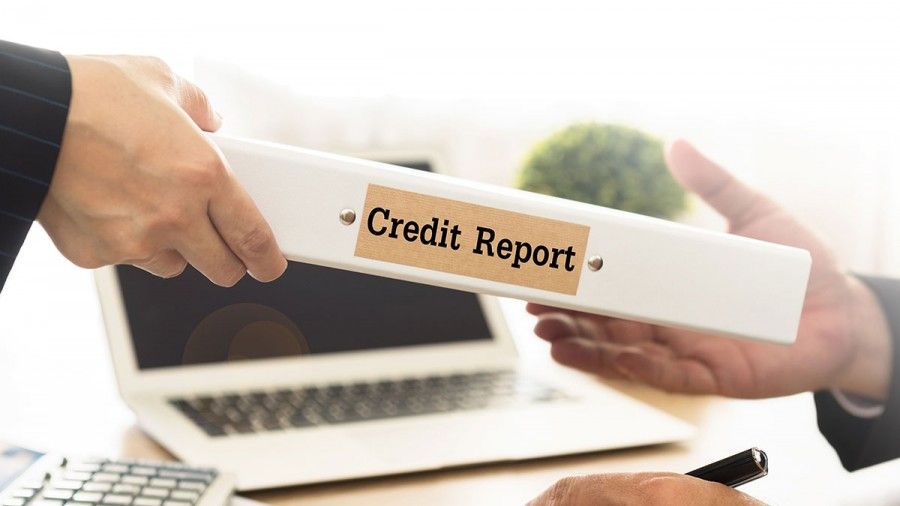Managing cash flow effectively means keeping a close eye on the financial health of suppliers and customers. Learn how to run a credit report for a business.
Thinking about running a credit report for businesses you work with? It is a smart move, especially given the current uncertain economic environment.
Businesses are amassing more debt than in previous years, and it is leading to later payments. Forty-three percent of the invoices in North America went unpaid by their due dates last year. That amounts to an increase over the prior year by 25%. With consumer debt now topping $14 billion and the U.S. businesses reporting a staggering 72% increase in payment defaults, it is good practice to examine the financial health of your major customers and suppliers.
The pandemic threw many businesses into turmoil. Even long-term vendors and customers may be facing hardships in 2021. To avoid having their financial trouble flowing downstream to your business, you need to make sure you know the financial health of your suppliers and customers and whether they are showing signs of stress.
Pulling a credit report for a business can provide the insight you need to better manage your credit, forecast your cash flow, and avoid unnecessary collections.
How to Run a Credit Report on a Business Supplier or Customer
Pulling a credit report for a business is surprisingly easy. Unlike consumer credit reports, you do not need permission to check credit reports for a business. Go to myaccredit.com to search sample business credit reports and purchase them online without a subscription.
Selecting the Right Credit Report for a Business
Three credit reporting agencies offer different types of credit checks. Experian, Dun & Bradstreet, and Equifax also collect different types of information to evaluate credit reports for business, but each will give you an overall credit score that indicates its financial health. Because each type of credit check provides slightly different information, you will want to compare the differences and see samples of each type of business credit report before deciding which is right for you.
Here are some of the reports that are available and what they will tell you. These are typically one-page reports that provide an overall credit score with additional details.
Experian Business Credit Reports
The Experian Score Summary provides a top-level report on business identity and description. It also includes a Risk Dashboard as well as a Payment and Legal Filings Summary.
Risk Dashboard
Repayment risk
Financial stability risk score
Credit Limit Recommendation
Days beyond payment term (DBT)
Derogatory legal filings and fraud alerts
Payment and Legal Filings Summary
Days beyond terms
Creditor balances
Bankruptcy
Liens
Judgments and UCC filings
Dun & Bradstreet Business Credit Reports
The D&B Business Credit Report provides a look at the company’s profile, business affiliations, and predictive information about the business.
Business viability risk
Predictive payment data
Company profile
Total loss predictor
D&B PAYDEX Score
Equifax Business Credit Reports
Equifax also offers top-level reporting, including stock exchange information and Forbes 1000 ratings. It also comes with a Risk Dashboard and Payment & Legal Filings Summary.
Risk Dashboard
Credit score
Repayment risk
Credit limit recommendation
Days beyond payment term (DBT)
Derogatory legal filings and fraud alerts
Payment & Legal Filings Summary
Days beyond terms
Creditor balances
Bankruptcy
Liens
Judgments and UCC filings
Equifax business credit reports also include summary-level tradeline details for both financial transactions and non-financial tradelines, along with detailed owner/guarantor information.
Complete Detail Credit Reports for Business
There are also more in-depth reports available that provide more complete details in addition to Score Summary reporting. These include:
Experian Premier Profile
Dun & Bradstreet BIR Report
Dun & Bradstreet Public Records Report
View Sample Credit Reports for Business
When you are extending credit to a customer or depending on a supplier, you are counting on them to live up to the terms of their agreement. If a customer is not able to pay you on time or a supplier cannot purchase the materials they need to deliver the products you ordered, it can hurt your business.
Anytime you take on a new customer, supplier, or vendor, you might be putting your business at risk if you do not know their financial situation.
Search and select a credit report for business from Dun & Bradstreet, Equifax, and Experian at myaccredit.com.





